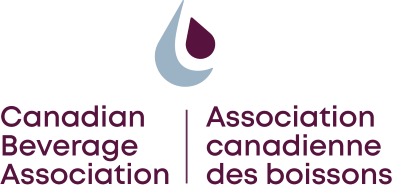Observational study of Mexico's beverage tax draws no conclusions
TORONTO, Jan. 6, 2016 /CNW/ - A report released today in BMJ attempts to show a relationship between beverage consumption and taxation. However, the researchers emphasize that this observational study can reveal no definitive conclusions, and points to other weaknesses such as incomplete data. Taxes on common grocery items like beverages do not improve public health, and Mexico's experience further proves this point. The study also fails to show that the tax had a meaningful effect on obesity rates or body-mass index.
Academic evidence and real-life examples have repeatedly demonstrated that a tax on certain foods and beverages such as sugar, or sugar-sweetened beverages, is not effective in reducing obesity or changing consumption habits. A sustained commitment by all stakeholders - parents, educators, and leaders in the public, private and not-for-profit sectors - is the most effective way to tackle public health issues.
As an industry, we have already reduced daily beverage calories by 20% per person over the last decade1, at a time when obesity in Canada has increased.2 The Canadian beverage industry recently set a goal to further reduce per capita beverage calories by another 20% by 2025 through a program called Balance Calories.
Additional information and background:
- This study estimates that the drop in caloric intake due to the tax is extremely minimal - about 4.7 calories per day in an average diet of 3,025 calories per day.
- Another study shows that caloric consumption in Mexico has only decreased by six calories per day.3
- In Mexico, people consume 90 litres more sugar-sweetened beverages per person, per year, than Canadians.4
- In the United States, states that have had excise taxes on soft drinks such as West Virginia, Arkansas, and Tennessee continue to rank in the top 10 most-obese states.5
- US states such as Colorado and Vermont, which have no soda tax, rank amongst the least obese states.6
The Canadian Beverage Association is the national trade association representing the broad spectrum of companies that manufacture and distribute the majority of nonalcoholic refreshment beverages consumed in Canada.
__________________________________
1 Canadean www.canadean.com – This refers to beverage calorie reduction overall, excluding milk and other dairy beverages, hot coffees and teas.
2 Statistics Canada
3 National Soft Drinks Association (ANPRAC).
4 http://latino.foxnews.com/latino/health/2011/09/06/mexico-leads-world-in-consumption-sugary-drinks-study-says/
5 The State of Obesity: Obesity trends and policy analysis, "States with the Highest Obesity Rates," http://stateofobesity.org/lists/highest-rates-adult-obesity/
6 http://stateofobesity.org/adult-obesity/
SOURCE Canadian Beverage Association

Carolyn Fell, 416-362-2424, 416-434-2194, [email protected]

Share this article